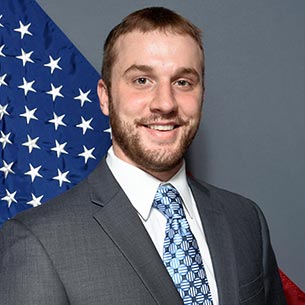Aggressive Divorce Lawyers in Virginia
Have you been wronged? Left to pick up the pieces? Call us. We help our clients put their lives back together.
Testimonials:
“Wonderful law firm…Laura Butler is the best! Very realistic, yet understanding.”
“Kelly Roberts and her entire firm epitomize professionalism and superb legal assistance! A terrific legal firm!”
“In every professional dealing I have had with Laura Butler, I have found her to be exceptionally knowledgeable and well-prepared. In addition, she has consistently been able to see my situation and her counsel has been to the point and helpful for me specifically. She has earned my trust in her judgment. I find her to be pragmatic and an effective communicator – able to grasp the situation and to communicate clearly the counsel, advice, and solutions that are best in each situation.”
“Laura is always prepared. I never saw her surprised either in or out of court. She treats all adversaries with respect, and then proceeds to dismantle them. When I saw how well she knew, and could quickly recall, the details of my case, in court, I was amazed. The other attorney had to refer to his notes to get the names and ages of the children, while Laura was able to give names, ages and the schools they attended without referring to anything. I could tell the respect the judge had for her.”
Contact us today for an Initial Consultation. It’s the first step to putting your life back together.
Eight frequently asked questions about VA divorce cases:
1. What is a contested divorce?
In Virginia, a contested divorce is one in which the parties do not agree on the terms of the divorce. Usually when there is a contested divorce the parties are in disagreement over child custody, spousal support or property distribution. During the course of the contested divorce, the parties will attend a pendente lite hearing. This is usually the first hearing where the Judge sets custody, support, who gets to live in the house, and who has to pay the bills.
After the pendente lite hearing, the parties typically go through a discovery process where the attorneys learn about the other side’s assets and position. The contested divorce usually ends with an equitable distribution hearing where the Judge determines how to divide the property, custody and support on a permanent basis.
2. How do I meet the “domicile” requirement in Virginia?
When an issue concerning domicile arises, answers to the following questions are important:
- How long have you resided in Virginia?
- Do you own property in Virginia?
- Are you employed in Virginia? How long?
- Have you paid taxes in Virginia?
- Are you a member of any civic organizations in Virginia?
- Are you a member of any church or religious group in your community?
- Have you made any statement to others indicating an intent to reside in Virginia?
3. What is an no-fault or non-contested divorce?
In Virginia, a person may file for an uncontested, no-fault divorce if they have lived separate and apart with in the intent to obtain a divorce for over one year. If the parties have entered into a separation agreement and have no children, then they can obtain the divorce after only six months of separation.
Even in uncontested divorces, it is very important to hire an attorney because there may be large assets at stake, such as houses, retirements, military retirements, savings, 401Ks, and more that may need to be divided. The Judge can divide all assets, even if both spouse’s names are not on the asset in a process called equitable distribution.
4. What is equitable distribution?
In Virginia, the Court does not have to divide marital property equally. The Court may divide the property in whatever percentage it deems to be fair and equitable.
5. How are assets and liabilities distributed in a divorce?
Virginia is an equitable distribution state. Generally, marital assets and liabilities are equally distributed. However, some factors to consider are:
- Each party’s contribution to the marriage
- The relative economic circumstances of the parties
- The duration of the marriage
- Any interruption of the personal career or educational opportunities of either party
- The contribution by one party to the personal career or educational opportunities of the other party
- The desirability of having one party retain a particular asset, such as a business, free from interference by the other party
- The contribution of each party to the acquisition, enhancement, and production of income, assets, and liabilities
- The desirability of retaining the marital home as a residence for dependent child, or for one of the parties when it would be equitable and financially feasible to do so
- The intentional depletion or destruction of marital assets.
6. How do I discover hidden assets?
The emotional stress accompanying divorce often overshadows the vital importance of creating a sustainable financial situation that will affect you long after the emotional scars have healed. Although it may not be pleasant, getting a handle on your money and finances is the most important step to protecting yourself in a divorce. The first step is to identify all assets and debts that should be included in the marital estate.
Unfortunately, once a divorce is initiated, some spouses will do whatever they can to hide what they feel is their own money. Some spouses maintain hidden bank accounts or other secret financial activities throughout an entire marriage. If these actions are not discovered, one spouse is certain to obtain an unfair settlement.
- Tax returns are a good place to start. Go back at least five years to look for any inconsistencies in income, the presence of trusts, partnerships or real estate holdings. Tax returns can also reveal hidden bank accounts when automatic deposits to and from a bank account are indicated on the return that don’t match your customary account.
- Checking account statements for the past few years might reveal information you never knew about that could make a substantial difference in total assets to be divided. Match pay-stubs with actual deposits made into the account to determine if all income is accounted for, and if any funds are being diverted.
- Credit card accounts may show hidden debt that can have an impact on the divorce settlement. Unusual spending patterns may reveal an affair or other spending that does not benefit the marriage.
- Joint credit reports obtained for recent loan applications may reveal hidden credit card accounts, assets or debts of which you were unaware. Examine loan applications show income, assets and debt. Obtain a copy of your own credit report as a start.
- Brokerage statements track the purchase and sale of securities. If securities are sold and the proceeds are not accounted for, you can be sure that the assets are out there somewhere.
- Children’s bank accounts could be opened as a custodial account with the intent of hiding assets.
Knowing your assets and debts may help you avoid being a victim of an unfair settlement by a lying or dishonest spouse.
7. Do I need an attorney for a family law proceeding?
Although it is possible to represent yourself in family court, it is not advisable in the vast majority of cases. Should you choose to represent yourself, the court cannot assist you with your case. You are held to the same requirements as the other party’s attorney. If you mishandle your case due to lack of knowledge or skill, an attorney may have difficulty reversing your mistakes.
8. What is your fee structure?
We handle cases on a flat fee or hourly basis depending on the complexity of your case. We offer initial consultations at a reduced hourly rate. At the end of the consultation, we can determine the appropriate fee structure for your case, and you can evaluate our services and decide if you want to hire us. We accept all major credit cards to assist with payment.
Your Next Step:
Contact us today – We’re ready to help.
We have three offices conveniently located in Charlottesville, Palmyra (Across from Food Lion), Harrisonburg, and Staunton, Virginia.

























